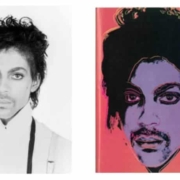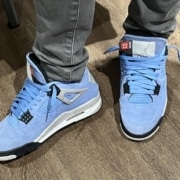ARTISTS, AUTHORS, SONGWRITERS AND OTHER CREATIVE PEOPLE TAKE NOTE – SCOTUS ISSUES TWO DECISIONS THAT AFFECT THE RIGHTS IN YOUR WORKS
In our January 2018 blogpost, we reported to you that the U.S. Supreme Court was considering whether to hear a case that would resolve a spilt between circuit courts in different parts of the country as to when a copyright owner could file suit for infringement. On March 4th, in Fourth Estate Public Benefit Corp. v. Wall-Street.com, LLC, the Supreme Court did just that, holding that a copyright owner could not file suit against a potential infringer until the Copyright Office has acted on the owner’s application for registration. This effectively overruled the practice in the Fifth Circuit (Texas, Louisiana, Mississippi) and Ninth Circuit (California, Arizona, Nevada, Oregon, Washington, Idaho, Montana) of permitting plaintiffs to file actions for copyright infringement once their application for registration was filed with the Copyright Office.
Register your Work Early for the Best Protection.
In a unanimous opinion authored by Justice Ruth Bader Ginsburg, the Supreme Court held that the language “no civil action for infringement of the copyright in any United States work shall be instituted until preregistration or registration of the copyright claim has been made” enumerated in 18 U.S.C. 411(a) means precisely what it says, and that no suit for infringement may be filed until the work is registered. In so holding, the Court pointed to language in the very next sentence of Section 411(a) providing an exception to the registration requirement in cases where “registration has been refused”, in support of it’s reasoning that the mere filing of an application for registration is not sufficient to satisfy the statute. In the later case, where registration has been refused, the plaintiff must also serve a copy of the complaint on the Register of Copyrights, who may, at his or her option become a party to the action on the issue of registerability of the copyright claim.
So what is the impact of this decision on authors, songwriters, artists the other people who create copyrightable work? Because the creator of a work must now wait until a decision is made on his or her application for registration, we expect to see a substantial increase in requests for “special handling” of applications from those parts of the county where a mere application had been sufficient to allow suit to be filed. “Special Handling” with regard to a copyright registration is a process where, for an extra fee ($800.00), an applicant is effectively bumped to the front of the line and a decision on registration is made within five (5) business days instead of the normal six to eight months. The normal fee to file an application for registration is $55.00, so the extra $800 fee per claim can be significant for those who create a number of works they wish to protect, or for “starving artists” with limited financial resources. In addition, when you consider that for registrations filed within three months of the work’s publication or before the infringement occurs a copyright owner is eligible for statutory damages of up to $150,000 per infringement, plus attorneys’ fees, the case for registering works sooner rather than later is even more compelling.
The best strategy for the average author, artist or songwriter is to file their application for registration with the Copyright Office early – within three (3) months of publication, or sooner to preserve the potential recovery of statutory damages and attorney fees and to give the application time to be processed before infringement occurs. In contrast, a person who waits until infringement occurs will need to either pay an additional $800 for “special handling” or wait 6-8 months before suit can be filed. Add to that the potential forfeiture of statutory damages and attorney fees, and the case for early registration makes perfect sense.
Don’t expect Hot Dogs with your Ticket Plan.
The ability to maximize a damages award under Section 504 which includes statutory damages and attorney fees discussed above is even more critical now that the Supreme Court has limited what a prevailing claimant can recover as costs in a successful lawsuit. In Rimini Street Inc. v. Oracle USA Inc., another March 4th unanimous Supreme Court opinion, the Court narrowly construed what “costs” could be recovered under Section 505 of the Copyright Act which states that a prevailing party may, in the discretion of the court, recover “full costs”. The Supreme Court struck down the Ninth Circuit’s expansive interpretation of the term “full costs” to mean something more than the “costs” typically awarded in other statutes and governed by 28 U.S.C. 1821 and 1920. Writing for the majority, Justice Kavanaugh quipped that “‘A ‘full moon’ means the moon, not Mars. A ‘full breakfast’ means breakfast, not lunch. A ‘full season ticket plan’ means tickets, not hot dogs. So too, the term ‘full costs’ means costs, not other expenses.”
Recommended Actions.
In response to these two decisions, we think that copyright owners should take the following steps to best protect their creative works:
Take action early. If at all possible, file an application for registration of your work within 3 months of the first publication of your work, and before a dispute arises. This puts you in the best position to act when infringement does occur, and puts you in a position to maximize the potential damages available if you prevail.
Request Special Handling. If infringement is already occurring, or is imminent, you should request expedited handling of your application for registration. While the $800 filing fee may seem excessive, it is far better than having to wait 6-8 months for the Copyright Office to act while your valuable work is being pirated by others.
Don’t expect hot dogs with your ticket. Litigation is expensive, time consuming and emotionally draining. Don’t expect a court to fully compensate you for your loss by awarding you “full costs” for all of your out-of-pocket expenses. If you followed our advice under bullet point one above, you may be able to recover statutory damages which can help ease the sting.
Don’t go it alone. While fling your own application for copyright registration may initially seem easy and fun (if you are a masochist), those unfamiliar with the process can make errors that may delay the application or result in a refusal which places the owner in a much less-desirable position. The attorneys at Martin IP Law Group are experienced in applying for and obtaining copyright registrations for clients involving all types of creative works. Contact Us today to see how we can help you protect your most important creations.







